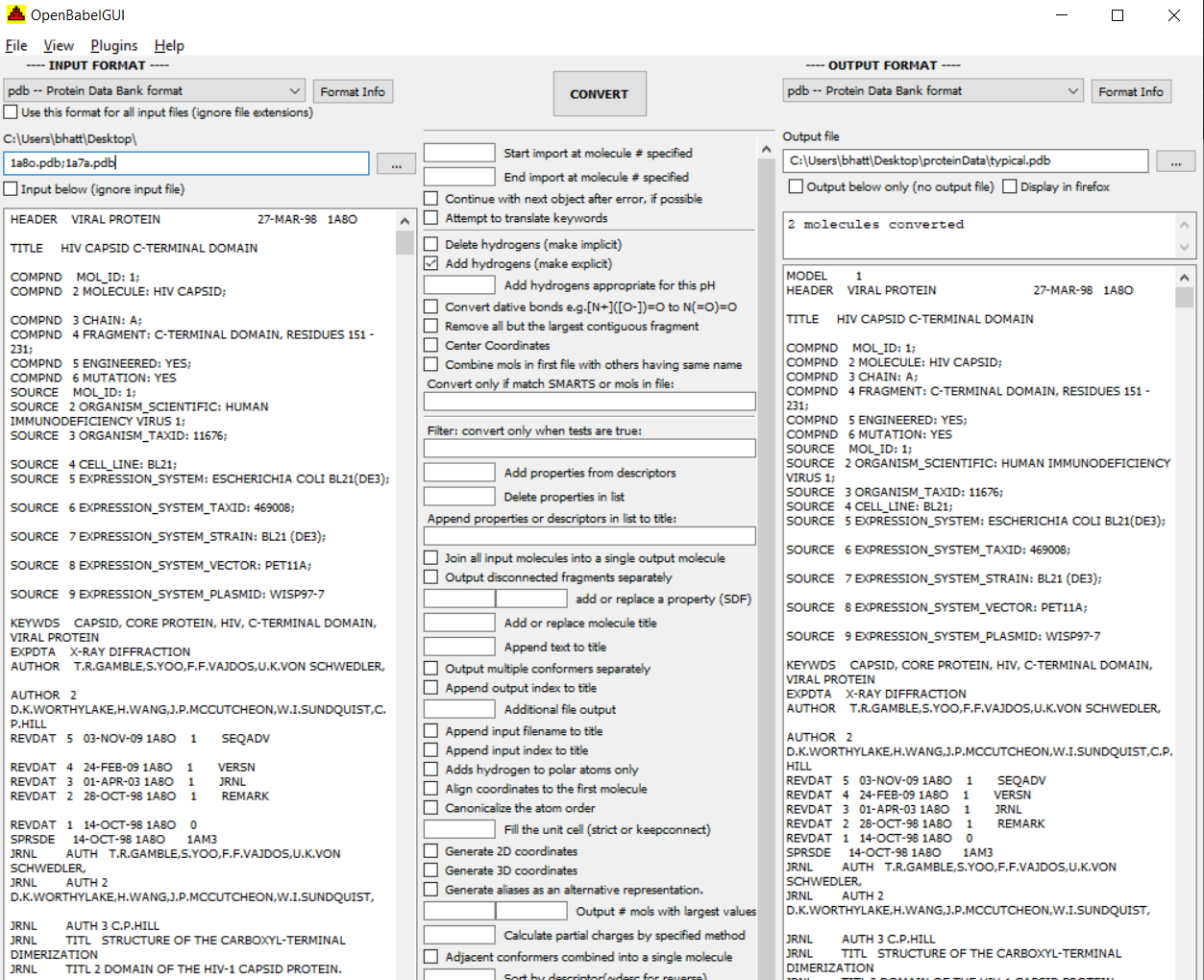I am completely new to using OpenBabel software.
I have about 9000 pdb files to which, I want to add hydrogens. It will be a very hectic task to open all of them 1 by 1 and then convert each of them. Is there any way I could convert all of them simultaneously.
Also, can you please tell me how to correctly select the output file? It asks for a destination file to which, it appends/overwrites the output. Is there a way I could choose the destination where it would create another .pdb file and save the output in it? I guess I am missing something here while choosing the output file.
Thanks in advance. Also, I asked a similar question before which was closed. Considering I am new with OpenBabel, if any further information is required or if there is some issue, please tell me so that I may improve my question.

